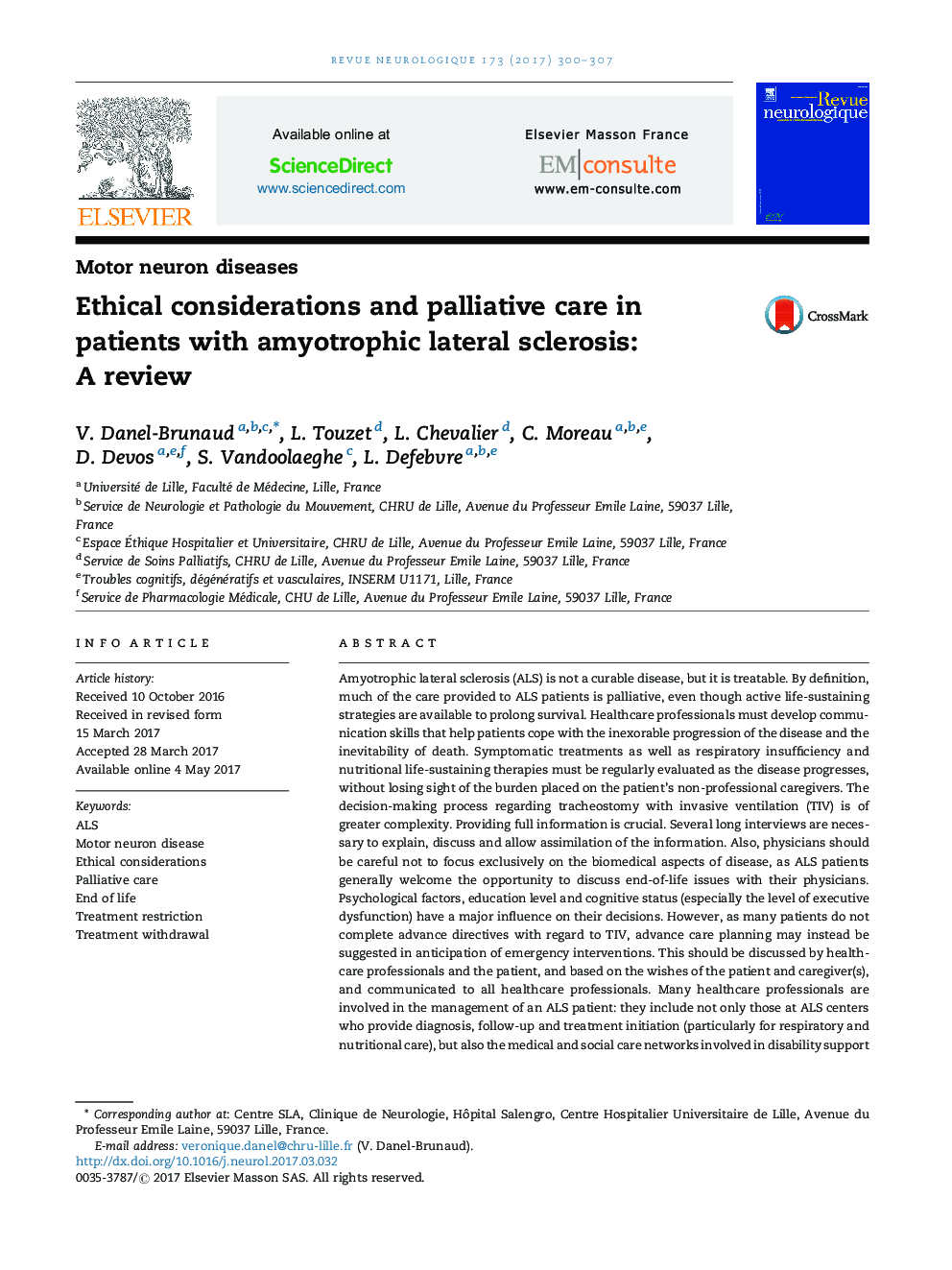| کد مقاله | کد نشریه | سال انتشار | مقاله انگلیسی | نسخه تمام متن |
|---|---|---|---|---|
| 5633333 | 1406568 | 2017 | 8 صفحه PDF | دانلود رایگان |
Amyotrophic lateral sclerosis (ALS) is not a curable disease, but it is treatable. By definition, much of the care provided to ALS patients is palliative, even though active life-sustaining strategies are available to prolong survival. Healthcare professionals must develop communication skills that help patients cope with the inexorable progression of the disease and the inevitability of death. Symptomatic treatments as well as respiratory insufficiency and nutritional life-sustaining therapies must be regularly evaluated as the disease progresses, without losing sight of the burden placed on the patient's non-professional caregivers. The decision-making process regarding tracheostomy with invasive ventilation (TIV) is of greater complexity. Providing full information is crucial. Several long interviews are necessary to explain, discuss and allow assimilation of the information. Also, physicians should be careful not to focus exclusively on the biomedical aspects of disease, as ALS patients generally welcome the opportunity to discuss end-of-life issues with their physicians. Psychological factors, education level and cognitive status (especially the level of executive dysfunction) have a major influence on their decisions. However, as many patients do not complete advance directives with regard to TIV, advance care planning may instead be suggested in anticipation of emergency interventions. This should be discussed by healthcare professionals and the patient, and based on the wishes of the patient and caregiver(s), and communicated to all healthcare professionals. Many healthcare professionals are involved in the management of an ALS patient: they include not only those at ALS centers who provide diagnosis, follow-up and treatment initiation (particularly for respiratory and nutritional care), but also the medical and social care networks involved in disability support and home care. Specialist palliative care teams can work in partnership with ALS centers early in the course of the disease, with the center coordinating information-sharing and collaborative discussions.
Journal: Revue Neurologique - Volume 173, Issue 5, May 2017, Pages 300-307
